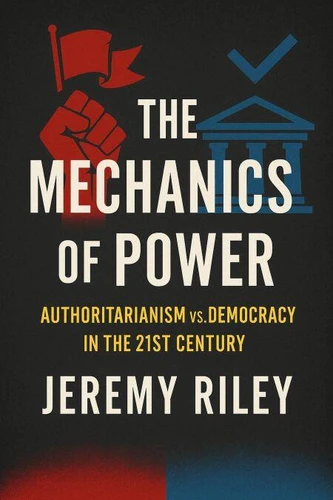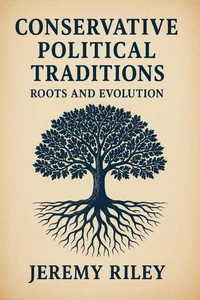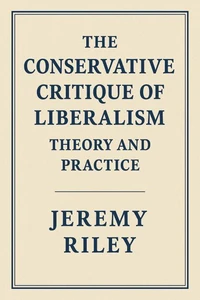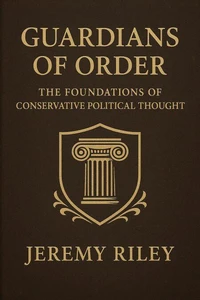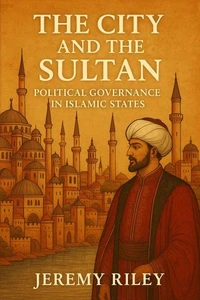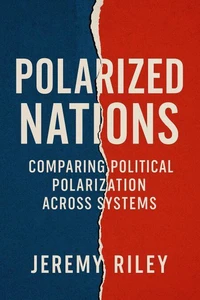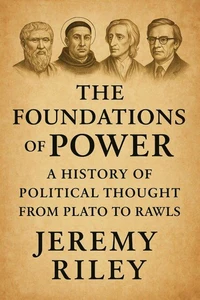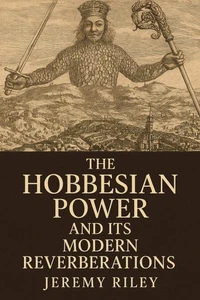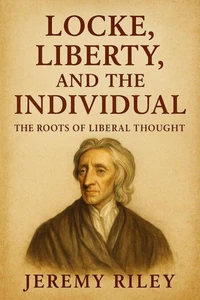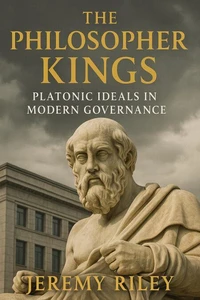The Mechanics of Power: Authoritarianism vs. Democracy in the 21st Century
Par :Formats :
Disponible dans votre compte client Decitre ou Furet du Nord dès validation de votre commande. Le format ePub est :
- Compatible avec une lecture sur My Vivlio (smartphone, tablette, ordinateur)
- Compatible avec une lecture sur liseuses Vivlio
- Pour les liseuses autres que Vivlio, vous devez utiliser le logiciel Adobe Digital Edition. Non compatible avec la lecture sur les liseuses Kindle, Remarkable et Sony
 , qui est-ce ?
, qui est-ce ?Notre partenaire de plateforme de lecture numérique où vous retrouverez l'ensemble de vos ebooks gratuitement
Pour en savoir plus sur nos ebooks, consultez notre aide en ligne ici
- FormatePub
- ISBN8230259480
- EAN9798230259480
- Date de parution20/04/2025
- Protection num.pas de protection
- Infos supplémentairesepub
- ÉditeurIndependently Published
Résumé
In The Mechanics of Power: Authoritarianism vs. Democracy in the 21st Century, political analyst Jeremy Riley delves into the shifting dynamics between two of the most potent political forces of our time-authoritarianism and democracy. In this thought-provoking exploration, Riley examines the rise of autocratic regimes in the wake of the global decline of democracy, revealing how authoritarian leaders are using modern tactics-surveillance, media manipulation, and populist rhetoric-to consolidate power.
At the same time, he investigates how democratic systems are increasingly struggling to maintain their core values of freedom, equality, and participation in the face of growing inequality, misinformation, and political polarization. Drawing on historical examples and contemporary case studies, Riley explores how leaders in countries like Russia, Hungary, Turkey, and China have embraced new forms of authoritarian governance while democracies, particularly in the West, face mounting challenges in safeguarding their institutions and citizens' rights.
From the strategic erosion of democratic norms to the use of technology as a tool for mass control, The Mechanics of Power offers a comprehensive analysis of how power is exercised in the 21st century. Through a detailed examination of global politics, this book looks at how the battle between authoritarianism and democracy is not just a matter of governance but a deeper struggle for identity, national sovereignty, and the future of global cooperation.
As Riley warns, the outcome of this contest will shape the direction of global politics for decades to come-ultimately determining whether democracy can adapt and survive, or if authoritarian models will dominate the political landscape of the future.
At the same time, he investigates how democratic systems are increasingly struggling to maintain their core values of freedom, equality, and participation in the face of growing inequality, misinformation, and political polarization. Drawing on historical examples and contemporary case studies, Riley explores how leaders in countries like Russia, Hungary, Turkey, and China have embraced new forms of authoritarian governance while democracies, particularly in the West, face mounting challenges in safeguarding their institutions and citizens' rights.
From the strategic erosion of democratic norms to the use of technology as a tool for mass control, The Mechanics of Power offers a comprehensive analysis of how power is exercised in the 21st century. Through a detailed examination of global politics, this book looks at how the battle between authoritarianism and democracy is not just a matter of governance but a deeper struggle for identity, national sovereignty, and the future of global cooperation.
As Riley warns, the outcome of this contest will shape the direction of global politics for decades to come-ultimately determining whether democracy can adapt and survive, or if authoritarian models will dominate the political landscape of the future.
In The Mechanics of Power: Authoritarianism vs. Democracy in the 21st Century, political analyst Jeremy Riley delves into the shifting dynamics between two of the most potent political forces of our time-authoritarianism and democracy. In this thought-provoking exploration, Riley examines the rise of autocratic regimes in the wake of the global decline of democracy, revealing how authoritarian leaders are using modern tactics-surveillance, media manipulation, and populist rhetoric-to consolidate power.
At the same time, he investigates how democratic systems are increasingly struggling to maintain their core values of freedom, equality, and participation in the face of growing inequality, misinformation, and political polarization. Drawing on historical examples and contemporary case studies, Riley explores how leaders in countries like Russia, Hungary, Turkey, and China have embraced new forms of authoritarian governance while democracies, particularly in the West, face mounting challenges in safeguarding their institutions and citizens' rights.
From the strategic erosion of democratic norms to the use of technology as a tool for mass control, The Mechanics of Power offers a comprehensive analysis of how power is exercised in the 21st century. Through a detailed examination of global politics, this book looks at how the battle between authoritarianism and democracy is not just a matter of governance but a deeper struggle for identity, national sovereignty, and the future of global cooperation.
As Riley warns, the outcome of this contest will shape the direction of global politics for decades to come-ultimately determining whether democracy can adapt and survive, or if authoritarian models will dominate the political landscape of the future.
At the same time, he investigates how democratic systems are increasingly struggling to maintain their core values of freedom, equality, and participation in the face of growing inequality, misinformation, and political polarization. Drawing on historical examples and contemporary case studies, Riley explores how leaders in countries like Russia, Hungary, Turkey, and China have embraced new forms of authoritarian governance while democracies, particularly in the West, face mounting challenges in safeguarding their institutions and citizens' rights.
From the strategic erosion of democratic norms to the use of technology as a tool for mass control, The Mechanics of Power offers a comprehensive analysis of how power is exercised in the 21st century. Through a detailed examination of global politics, this book looks at how the battle between authoritarianism and democracy is not just a matter of governance but a deeper struggle for identity, national sovereignty, and the future of global cooperation.
As Riley warns, the outcome of this contest will shape the direction of global politics for decades to come-ultimately determining whether democracy can adapt and survive, or if authoritarian models will dominate the political landscape of the future.

